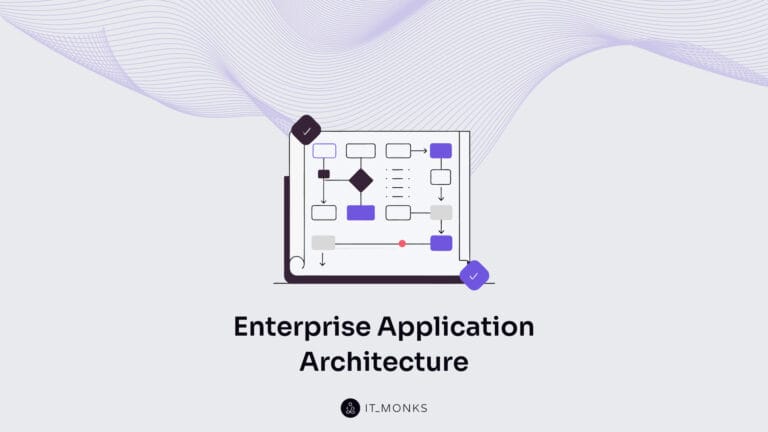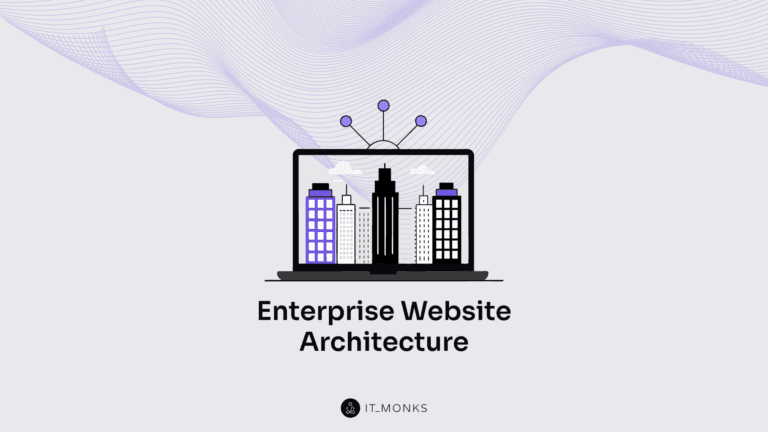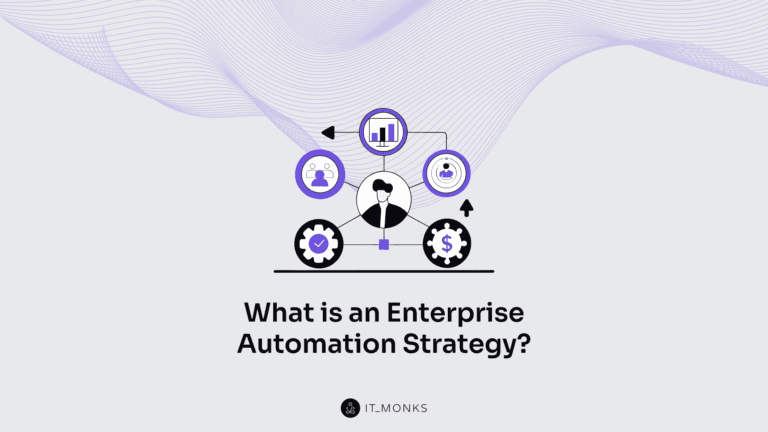Best Enterprise Ecommerce Platforms for Your Business
Table of Contents

Selecting the right ecommerce platform is crucial for enterprise-level businesses, as it directly impacts scalability, security, and overall business growth. As enterprises face unique challenges – such as handling massive traffic, managing complex operations, and maintaining security at scale – choosing a platform that meets these needs is essential. This article explores the top enterprise ecommerce platforms, comparing their features, strengths, and ideal use cases, helping you make an informed decision for your business.
What to Look for in an Enterprise Ecommerce Platform
Choosing the top enterprise ecommerce platforms involves more than selecting software that supports online transactions. You must consider various factors that ensure your ecommerce providers can handle the demands of a large-scale business.
Scalability
Scalability is one of the most critical factors when choosing the best enterprise WordPress development platform. As your business grows, you must handle larger traffic volumes, more transactions, and increased data. A scalable platform can efficiently manage these increases without compromising performance. Look for platforms that offer auto-scaling capabilities, cloud infrastructure, and the ability to manage spikes in traffic, especially during peak sales periods.
Security
Security is non-negotiable in ecommerce, particularly at the enterprise level, where sensitive customer data and financial transactions are at stake. Your ecommerce for enterprise provider must comply with industry standards like PCI DSS to protect against breaches and fraud. Additionally, consider platforms that offer advanced security features such as SSL certificates, data encryption, best e-commerce tools for fraud detection, and regular security updates.
Customization and Flexibility
Every enterprise has unique needs, making customization and flexibility essential in the top enterprise companies. A highly customizable platform allows you to tailor the user experience, integrate specific business processes, and differentiate your brand. Whether you modify the checkout process, integrate third-party tools, or customize the design, top enterprise ecommerce platforms should provide the flexibility to adapt to your specific requirements.
Integration Capabilities
Seamless integration with other enterprise systems is a must for efficient operations. Your ecommerce platform should easily connect with ERP systems, CRM tools (like WooCommerce CRM), inventory management systems (like a Woo store inventory manager), and marketing automation software. This ensures that data flows smoothly across your organization, improving efficiency, reducing errors, and providing a unified view of your business operations.
Performance and Reliability
For an enterprise, downtime or slow load times can result in significant revenue loss and damage your brand’s reputation. Therefore, performance and reliability are critical. Choose top enterprise ecommerce platforms that offer high uptime, fast load times, and robust infrastructure to ensure a seamless shopping experience for your customers enjoying the best shopping cart for digital products and physical goods. Features like content delivery networks (CDNs), caching mechanisms, and redundant servers can help maintain optimal performance even under heavy loads.
Best Enterprise Ecommerce Platforms
When it comes to choosing the top ecommerce for enterprise platforms, there are several top contenders that offer robust features, scalability, and customization to meet the demands of large businesses. Below is an overview of some of the top enterprise ecommerce solutions available, each with strengths and ideal use cases.
Shopify Plus

Shopify Plus is the enterprise-level version of Shopify, designed to support high-growth, high-volume businesses. Shopify Plus is one of the best enterprise ecommerce solutions known for its ease of use and quick setup. It provides a powerful platform that allows businesses to scale rapidly without getting bogged down in technical complexities.
Key Features:
- Scalability: Capable of handling significant traffic and sales volumes.
- Ease of Use: Intuitive interface with a minimal learning curve.
- App Ecosystem: Access to many apps and integrations to extend functionality.
- Omnichannel Capabilities: Seamless integration with multiple sales channels, including online, in-store, social media, and marketplaces.
Pros:
- Quick Setup. Shopify Plus offers a streamlined setup process that allows businesses to get up and running quickly, often in a matter of weeks.
- Ease of Use. The platform is designed with a user-friendly interface that requires little to no coding knowledge, making it accessible to non-technical users.
- Strong Support Network. Shopify Plus provides 24/7 dedicated support from a team of experts. Businesses also have access to a wide range of resources, including Shopify’s extensive knowledge base, community forums, and a network of Shopify Plus Partners who can assist with custom development and design needs.
- Extensive App Marketplace. Shopify’s app marketplace offers thousands of apps that can extend the functionality of your online store. Whether you need advanced analytics, enhanced SEO tools, or custom marketing solutions, the app ecosystem has a solution.
- Omnichannel Capabilities. Shopify Plus excels in omnichannel retailing, enabling businesses to sell across various platforms seamlessly. This includes integration with physical retail stores, social media platforms, and online marketplaces like Amazon and eBay.
- Security and Compliance. Shopify Plus is PCI DSS compliant, ensuring that all transactions are secure and that customer data is protected. The platform also handles updates and maintenance, so businesses don’t have to worry about security patches or staying compliant with evolving regulations.
Cons:
- Limited Customization. While Shopify Plus offers a wide range of themes and templates, it can be less flexible compared to open-source platforms like WooCommerce or Magento.
- Higher Costs for Additional Features and Apps. While the base Shopify Plus subscription covers essential ecommerce features, many advanced functionalities require additional apps or third-party integrations.
- Transaction Fees. Although Shopify Plus offers competitive pricing for enterprise clients, businesses that do not use Shopify Payments as their payment processor may incur additional transaction fees.
- Dependency on Third-Party Apps. The reliance on third-party apps for extended functionality can sometimes lead to challenges in terms of app compatibility, updates, and additional costs.
Less Control Over Hosting and Server Management. Shopify Plus is a fully hosted platform, which means that businesses do not have control over server management or hosting environments.
Shopify Plus is the best enterprise ecommerce platform for:
Businesses that need a robust, scalable solution without the complexity of managing technical infrastructure. Ideal for retail brands, fast-growing startups, and companies looking to expand quickly across multiple channels.
WooCommerce
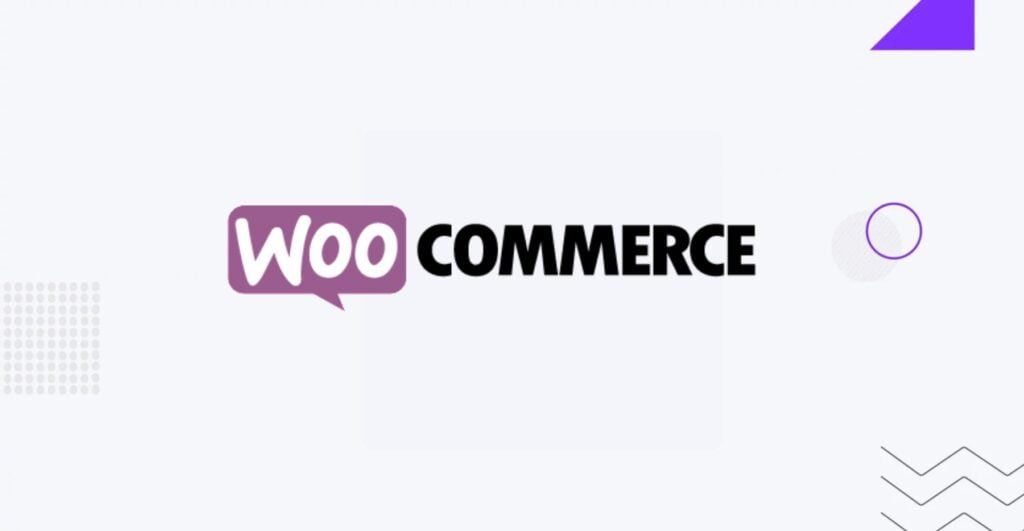
WooCommerce is a popular open-source ecommerce platform built on WordPress. While it started as a solution for small to medium-sized businesses, WooCommerce can also be adapted for enterprise use, especially when paired with the right hosting and infrastructure.
Key Features:
- Open-source: Fully customizable with access to the underlying code.
- Extensive Plugin Ecosystem: Thousands of plugins available to extend functionality.
- Flexibility: Highly customizable, allowing businesses to create unique ecommerce experiences.
- Integration with WordPress: Seamless integration with the world’s most popular content management system.
Pros:
- Flexibility. With access to the source code, businesses can modify and extend WooCommerce to fit their exact needs, whether it’s creating unique product pages, custom checkout processes, or integrating with niche third-party services.
- Vast Plugin Ecosystem. From SEO tools to advanced marketing automation, there’s a plugin for nearly every purpose.
- Strong Community Support. As an open-source platform, WooCommerce has a large and active community of developers, users, and experts who contribute to its ongoing development.
- Cost-effective. WooCommerce itself is free, and while additional costs come from hosting, premium plugins, and themes, it remains a cost-effective solution for businesses that need a robust ecommerce platform without the high upfront costs associated with some enterprise solutions.
- Integration with WordPress. WooCommerce’s seamless integration with WordPress allows businesses to leverage the powerful content management capabilities of WordPress while running a full-featured online store.
- SEO Friendly. With the right plugins and configurations, businesses can effectively enhance their search engine rankings, driving more organic traffic to their store.
Cons:
- Requires Technical Expertise. While WooCommerce is highly flexible, setting it up and managing it at an enterprise level requires a certain level of technical expertise. Businesses may need to hire developers or work with agencies to optimize the platform for performance, security, and scalability, which can add to the overall cost and complexity.
- Potential Scalability Issues. WooCommerce, when not properly optimized, can face scalability challenges, especially for large enterprises with high traffic and extensive product catalogs.
- Complex Maintenance and Updates. Since WooCommerce is built on WordPress and relies on multiple plugins, keeping the platform updated and secure can be challenging. Regular updates to WordPress, WooCommerce, and its plugins are essential, but they can sometimes cause compatibility issues or require additional troubleshooting, making maintenance more complex compared to fully managed platforms.
- Hosting and Infrastructure Costs. Although WooCommerce itself is free, businesses need to invest in quality hosting to ensure the platform runs smoothly at an enterprise level. This can involve higher hosting costs, especially for managed hosting solutions that offer the performance and support needed for large-scale operations.
- Security Concerns. Businesses need to be vigilant about security practices, including regular updates, using reputable plugins, and possibly implementing additional security measures to protect their online store and customer data.
Learning Curve for Non-Technical Users. While WooCommerce is user-friendly for those familiar with WordPress, non-technical users might find it challenging to navigate its setup and customization options.
WooCommerce is the best enterprise ecommerce platform for:
Businesses already using WordPress or those looking for a customizable, open-source solution. WooCommerce is ideal for enterprises that value flexibility and control over their ecommerce platform.
Adobe Commerce (Magento)
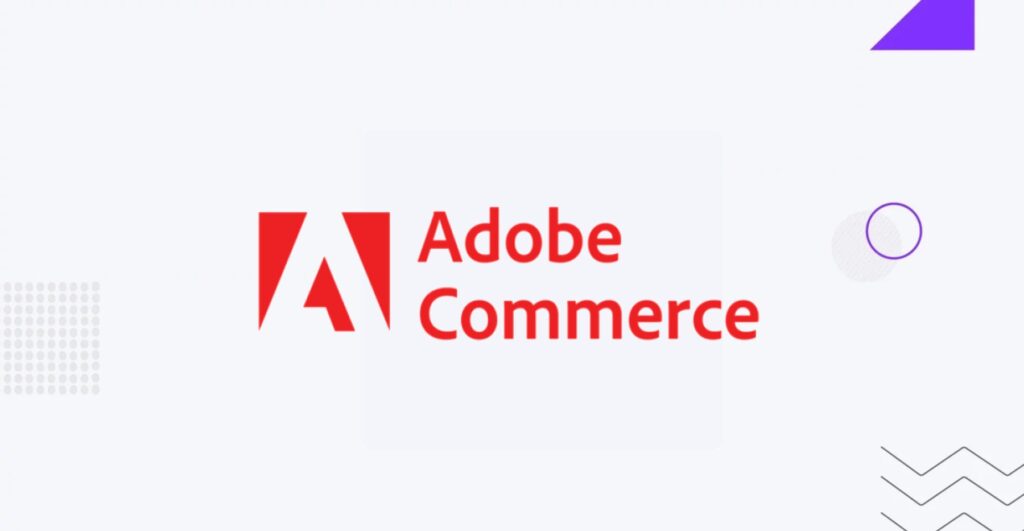
Adobe Commerce, formerly known as Magento, is one of the most powerful and flexible enterprise ecommerce platforms available. It offers high levels of customization and scalability, making it suitable for businesses with complex needs.
Key Features:
- High Customization: Extensive control over the look, feel, and functionality of the online store.
- Open-source Flexibility: Ability to modify and extend the platform’s capabilities.
- Strong Community Support: A large community of developers and users contributing to the platform’s ecosystem.
Pros:
- Unmatched Flexibility. Adobe Commerce offers unparalleled flexibility, making it possible for businesses to create a completely customized ecommerce experience.
- Strong Customization Options. The platform’s extensive customization capabilities allow businesses to control every aspect of their online store, from the front-end design to the back-end functionality.
- Comprehensive Feature Set. Adobe Commerce comes with a comprehensive set of features out of the box, including advanced product management, powerful marketing tools, multi-store capabilities, and robust reporting and analytics.
- Scalability. Adobe Commerce is designed to grow with your business. Whether you’re expanding your product line, entering new markets, or experiencing increased traffic, the platform can scale to meet your needs.
- Strong Community and Partner Ecosystem. The extensive community and partner ecosystem surrounding Adobe Commerce provide businesses with access to a wide range of third-party extensions, custom solutions, and expert services.
- Advanced Security Features. The platform helps businesses safeguard their e-commerce operations against potential threats by supporting PCI compliance, regularly updating security patches, and implementing advanced security measures.
Cons:
- Steep Learning Curve. Getting up to speed can take time and effort for businesses new to the platform or those without in-house technical expertise. This steep learning curve can hinder businesses looking for a more straightforward, out-of-the-box solution.
- Requires Significant Technical Expertise. Businesses may need to invest in a skilled development team or partner with an experienced agency to ensure the platform is properly configured and optimized.
- Resource-intensive Setup and Maintenance. Setting up and maintaining Adobe Commerce can be resource-intensive, both in terms of time and cost. The platform’s powerful features require robust hosting infrastructure, and regular maintenance is necessary to keep the system running smoothly.
- Higher Total Cost of Ownership (TCO). While Adobe Commerce’s open-source nature offers flexibility, the total cost of ownership can be high when factoring in hosting, development, customization, and maintenance.
- Potential for Over-customization. The ability to customize every aspect of the platform can sometimes lead to over-customization, where businesses end up with a highly complex system that is difficult to manage and maintain. Without careful planning and a clear strategy, the platform’s flexibility can become a double-edged sword, leading to inefficiencies and increased complexity.
- Longer Time to Market. Due to the extensive customization and setup process, launching an ecommerce site on Adobe Commerce can take longer than on other platforms. Businesses need to factor in this extended timeline when planning their e-commerce strategy, especially if they need to get to market quickly.
Adobe Commerce is the best enterprise ecommerce platform for:
Large businesses with complex needs that require a highly customizable platform. Adobe Commerce is ideal for companies with dedicated IT teams or those with a budget to hire developers for ongoing maintenance and customization.
Salesforce Commerce Cloud
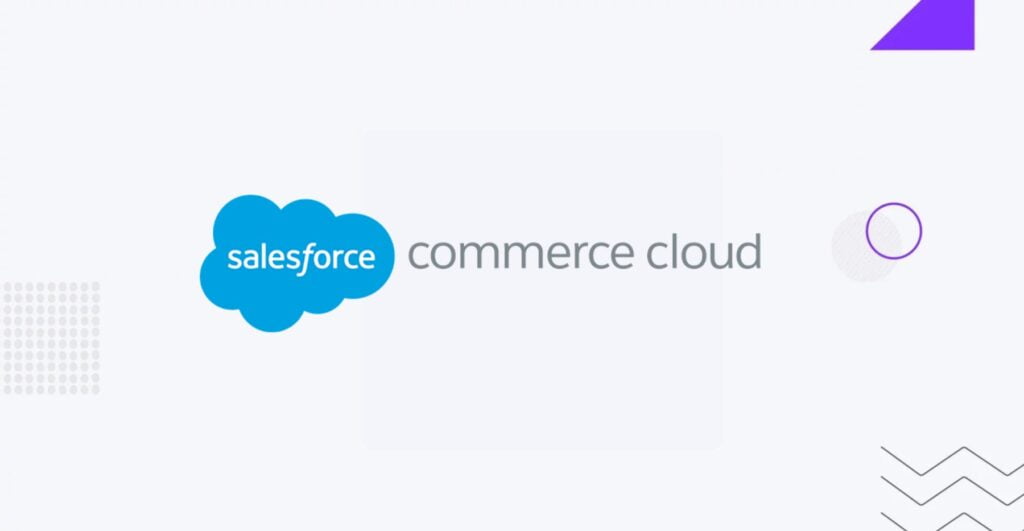
Salesforce Commerce Cloud is a cloud-based ecommerce platform known for its integration with Salesforce’s CRM capabilities. It leverages AI-driven personalization to enhance customer experiences and offers scalability for large businesses.
Key Features:
- Strong CRM Integration: Seamless connection with Salesforce’s CRM tools for unified customer data management.
- AI-driven Personalization: Uses AI to deliver personalized shopping experiences.
- Scalability: Designed to grow with large enterprises, capable of handling high traffic and sales volumes.
Pros:
- Deep CRM Integration. One of Salesforce Commerce Cloud’s most significant advantages is its seamless integration with Salesforce’s CRM tools. This integration allows businesses to unify their customer data across sales, service, and marketing, creating a consistent and personalized customer experience at every touchpoint.
- AI-driven Features. Businesses can increase engagement, improve conversion rates, and foster customer loyalty by automatically delivering personalized product recommendations, targeted content, and optimized search results.
- Scalability. Salesforce Commerce Cloud is built to handle the demands of large, fast-growing enterprises. Its cloud-based architecture ensures the platform can scale effortlessly to accommodate increased traffic, larger product catalogs, and higher transaction volumes.
- Cloud-based Flexibility. Businesses can benefit from automatic updates, ensuring they always have access to the latest features and security patches. Additionally, the platform’s cloud-based nature reduces the burden on internal IT teams, as there is no need for on-premise infrastructure or manual software updates.
- Global Reach. Salesforce Commerce Cloud supports multi-currency, multi-language, and multi-region capabilities, making it an excellent choice for businesses operating on a global scale.
- Comprehensive Ecosystem. Being part of the Salesforce ecosystem, Commerce Cloud users have access to a wide range of tools and services that can enhance their ecommerce operations. This includes integrations with other Salesforce products like Marketing Cloud and Service Cloud, as well as a rich marketplace of third-party apps and services that can extend the platform’s functionality.
Cons:
- High Cost. The platform’s pricing can be prohibitively expensive for smaller enterprises or those with limited budgets. Additionally, the cost of licensing, customization, and ongoing maintenance can add up, making it one of the more expensive options on the market.
- Complex Implementation Process. Implementing Salesforce Commerce Cloud can be a complex and time-consuming process, especially for businesses with unique requirements or those migrating from another platform.
- Reliance on Salesforce Ecosystem. While the deep integration with the Salesforce ecosystem is a significant advantage, it also means that businesses are somewhat locked into the Salesforce suite of products. For companies that use different CRM or marketing tools, this reliance can create challenges in terms of integration and flexibility.
- Steep Learning Curve. Businesses may need to invest in training for their teams to fully utilize the platform’s potential.
- Customization Challenges. While Salesforce Commerce Cloud offers a high degree of customization, making significant changes to the platform can be challenging and may require expert development skills.
- Dependence on Third-party Developers. Due to the platform’s complexity, businesses may need to rely on third-party developers or agencies for customizations, integrations, and ongoing maintenance.
Salesforce Commerce Cloud is the best enterprise ecommerce platform for:
Businesses that prioritize customer relationship management and personalized shopping experiences. Salesforce Commerce Cloud is ideal for companies already using Salesforce’s suite of products or those looking to leverage advanced CRM capabilities.
BigCommerce Enterprise
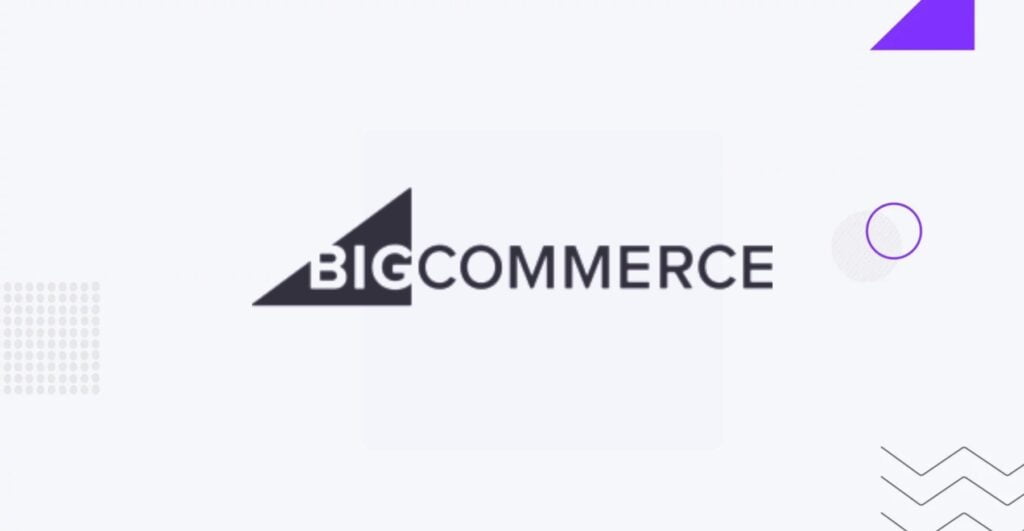
BigCommerce Enterprise offers a flexible, cloud-based ecommerce solution tailored for large businesses. It is known for its cost-effectiveness, ease of use, and powerful integration capabilities, making it a strong contender in the enterprise ecommerce space.
Key Features:
- Cost-effectiveness: Competitive pricing for enterprise-level features.
- Ease of Use: User-friendly interface with minimal learning curve.
- Integration Capabilities: Strong integration with various business tools, including ERP and CRM systems.
- Customization: Flexible API for ecommerce websites.
Pros:
- Cost-effective. The platform offers enterprise-grade features at a price point often lower than its competitors. Additionally, the transparent pricing model means fewer hidden costs, helping businesses manage their budgets more effectively.
- Ease of Use. The platform’s intuitive dashboard and drag-and-drop functionality make it accessible to users with varying technical expertise. This ease of use reduces the need for extensive training or a dedicated IT team, allowing businesses to focus on growth and customer engagement rather than managing complex systems.
- Strong Integration Options. BigCommerce Enterprise seamlessly connects with various business tools, including ERP, CRM, and marketing automation systems. These integrations enable businesses to streamline operations, improve data accuracy, and enhance overall efficiency.
- Scalable. BigCommerce Enterprise is built to scale with your business, making it suitable for companies experiencing rapid growth. The platform can handle increased traffic, larger product catalogs, and higher transaction volumes without compromising performance.
- API Flexibility. BigCommerce Enterprise’s flexible API allows businesses to customize their e-commerce platform to meet specific requirements. Whether integrating with proprietary systems, adding custom features, or tailoring the user experience, the API flexibility provides the tools needed to create a truly customized e-commerce solution.
- Omnichannel Capabilities. BigCommerce Enterprise supports omnichannel retailing, enabling businesses to sell across multiple platforms, including online stores, social media, marketplaces, and physical locations.
- Security. Security is a top priority for BigCommerce Enterprise, with the platform offering robust security features to protect customer data and ensure compliance with industry standards. The platform includes built-in SSL certificates, fraud prevention tools, and regular security updates, helping businesses safeguard their online stores and build customer trust.
Cons:
- Limited Built-in Features. Businesses looking for highly specialized features or industry-specific tools may find that BigCommerce requires additional third-party apps or custom development to meet their needs. This reliance on external solutions can add to the platform’s overall cost and complexity.
- Dependence on Third-party Apps. To achieve advanced functionality, businesses may rely on third-party apps or integrations. While the platform’s app marketplace is extensive, the need for additional apps can lead to higher costs and potential compatibility issues. Managing multiple third-party apps can also complicate the ecommerce environment, requiring additional oversight and maintenance.
- Customization Limitations. Although BigCommerce Enterprise offers customization options, the platform’s capabilities are limited, particularly compared to fully open-source solutions like Magento.
- Learning Curve for Advanced Features. While the platform is generally easy to use, there is a learning curve for leveraging its more advanced features and integrations.
- Transaction Fees. Depending on the payment gateway chosen, businesses may incur transaction fees on top of their regular subscription costs. These fees can add up, particularly for high-volume sellers, making it essential for businesses to consider their payment processing options when using BigCommerce Enterprise carefully.
- Less Community Support Compared to Open-source Solutions. While BigCommerce has a dedicated support team, the community support available is less extensive than what you might find with open-source platforms like WooCommerce or Magento.
BigCommerce Enterprise is the best enterprise ecommerce platform for:
Mid to large-sized businesses looking for a cost-effective, easy-to-use platform that integrates well with existing systems. BigCommerce Enterprise is suitable for a wide range of industries, particularly those looking for a balance between functionality and budget.
SAP Commerce Cloud
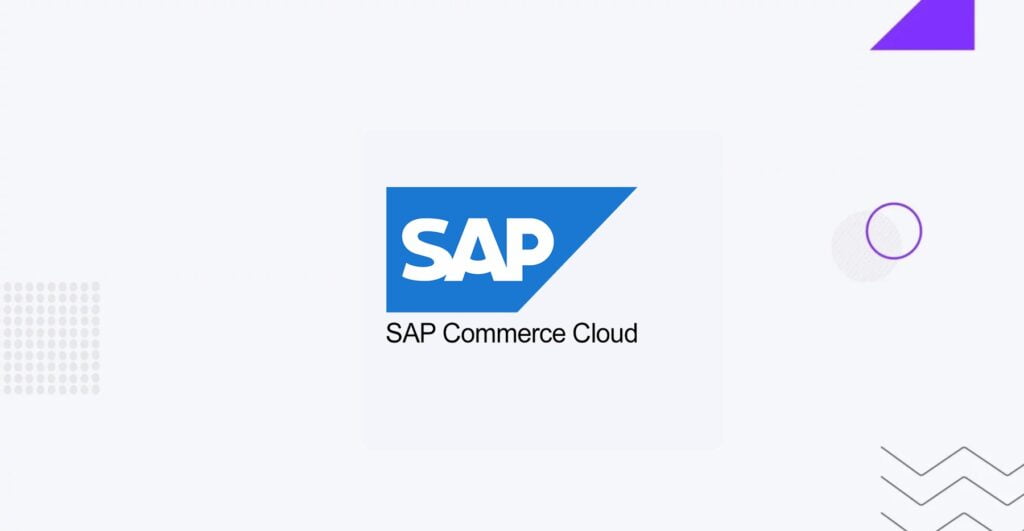
SAP Commerce Cloud is a comprehensive ecommerce platform designed for complex and global business needs. It integrates seamlessly with SAP’s ERP systems, offering robust capabilities for enterprises operating at scale.
Key Features:
- Integration with SAP ERP: Seamless connection with SAP’s ERP systems for end-to-end business management.
- Scalability: Built to handle global operations with multi-language and multi-currency support.
- Global Reach: Strong support for international businesses, including localization features.
Pros:
- Deep Integration with SAP Products. One of the most significant advantages of SAP Commerce Cloud is its seamless integration with other SAP products, particularly SAP ERP. This deep integration allows businesses to manage their entire value chain from a single platform, ensuring data consistency, improving decision-making, and streamlining operations.
- Robust Scalability. SAP Commerce Cloud is designed to support businesses at scale, making it an ideal solution for large enterprises with complex needs. The platform can handle high volumes of traffic, transactions, and product catalogs, ensuring that your ecommerce operations run smoothly even during peak periods.
- Ideal for Global Operations. With its strong support for multi-language, multi-currency, and multi-region operations, SAP Commerce Cloud is perfectly suited for businesses with a global footprint. The platform’s localization features enable companies to provide a tailored shopping experience to customers in different regions, complying with local regulations and cultural preferences.
- Advanced B2B Capabilities. SAP Commerce Cloud offers a range of features specifically designed for B2B ecommerce, such as customer-specific pricing, complex product configurations, and contract management.
- Strong Security and Compliance. As part of the SAP ecosystem, SAP Commerce Cloud benefits from the robust security and compliance standards that SAP is known for. The platform includes features such as data encryption, access controls, and regular security updates to protect your ecommerce operations from potential threats.
- Comprehensive Ecosystem. SAP Commerce Cloud is part of a broader ecosystem that includes many SAP solutions, such as SAP Customer Data Cloud, SAP Marketing Cloud, and SAP Service Cloud.
- AI-driven Personalization and Analytics. The platform’s AI-driven capabilities enable businesses to analyze customer behavior, predict trends, and tailor their offerings to individual customers, enhancing customer engagement and driving conversions.
Cons:
- High Cost. One of SAP Commerce Cloud’s primary drawbacks is its cost. The platform is one of the more expensive options in the market, particularly when considering the total cost of ownership, which includes licensing fees, implementation costs, and ongoing maintenance.
- Complex Implementation Process. Implementing SAP Commerce Cloud can be complex and time-consuming, particularly for businesses that are not already using SAP’s ecosystem.
- Best Suited for Businesses Already Using SAP. Companies not part of the SAP ecosystem may find it challenging to justify the investment, as they would need to adopt multiple SAP solutions to leverage the platform’s potential fully.
- Steep Learning Curve. The platform’s extensive feature set and customization options have a steep learning curve. Businesses may need to invest significant time and resources into training their teams to use SAP Commerce Cloud effectively.
- Dependency on SAP Ecosystem. While integrating SAP’s ERP and other solutions is a strength, it also creates a dependency on the SAP ecosystem. Businesses that adopt SAP Commerce Cloud may find it challenging to switch to other platforms in the future, as they become deeply embedded in the SAP environment.
- Limited Community Support. Unlike open-source platforms with large and active communities, SAP Commerce Cloud has a more limited user community.
- Longer Time to Market. Due to the complexity of the platform and the need for extensive customization, businesses may experience a longer time to market when launching their ecommerce operations on SAP Commerce Cloud.
SAP Commerce Cloud is the best enterprise ecommerce platform for:
Large multinational enterprises with complex business processes and a need for tight integration with SAP’s ERP systems. SAP Commerce Cloud is ideal for global companies that require a highly scalable and integrated solution.
Comparison Table
Below is a comparison of the key features, pricing, and suitability of the top enterprise ecommerce platforms discussed:
| Platform | Customization | Scalability | Security | Best For |
|---|---|---|---|---|
| Shopify Plus | Medium | High | High | Businesses that prioritize ease of use and reliability |
| WooCommerce | High | Medium | Medium | Enterprises that use WordPress and need customization |
| Adobe Commerce (Magento) | High | High | High | Large enterprises with complex needs |
| Salesforce Commerce Cloud | Medium | High | High | Enterprises focusing on personalized experiences |
| BigCommerce Enterprise | Medium | High | High | Cost-conscious businesses needing easy integration |
| SAP Commerce Cloud | Medium | High | High | Global enterprises requiring SAP ERP integration |
How to Choose the Right Platform for Your Business
Selecting the best enterprise ecommerce platform is a critical decision that can significantly impact your business’s success. Here’s how you can make the best choice by considering key factors:
Identify Business Needs
The first step in choosing enterprise companies is thoroughly understanding your business needs. This involves assessing your current operational challenges, sales channels, target audience, and the specific goals you want to achieve with your ecommerce site.
For instance, if your business requires extensive customization or has a complex product catalog, you might consider platforms like Adobe Commerce (Magento), which offer high flexibility.
On the other hand, if ease of use and quick implementation are more important, a platform like Shopify Plus might be more suitable. The key is to match the platform’s capabilities with your unique business requirements to ensure it can effectively support your operations.
Budget Considerations
Budget is another crucial factor to consider when choosing ecommerce providers. While it might be tempting to go for the platform with the most features, balancing functionality with cost is important. Consider not just the initial setup costs, but also the ongoing expenses such as subscription fees, transaction fees, and costs for additional apps or plugins.
For example, while platforms like BigCommerce Enterprise offer a cost-effective solution with strong out-of-the-box features, others like Salesforce Commerce Cloud may require a larger investment but offer advanced CRM integration that could be crucial for your business. Understanding your budget constraints and how much you’re willing to invest will help you make a decision that aligns with your financial resources.
Future Growth
As your business grows, your enterprise ecommerce platform needs to scale with it. Therefore, it’s important to choose an ecommerce for enterprise platform that meets your current needs and accommodates future growth.
Look for platforms that offer scalability to handle increased traffic, expand product lines, and add new features or sales channels. Platforms like SAP Commerce Cloud are built to support global operations and can scale effectively as your business expands into new markets. Similarly, Shopify Plus is designed for rapid growth and can support businesses as they increase in size and complexity. Planning for future growth ensures your platform won’t become a bottleneck as your business evolves.
Conclusion
Choosing the top enterprise ecommerce platforms is a critical decision that requires careful consideration of your business needs, budget, and future growth plans. Each platform offers unique features and capabilities, making it important to align its strengths with your specific business goals. Whether you prioritize customization, scalability, ease of use, or integration capabilities, there is a platform that can meet your needs and support your business as it grows. By carefully evaluating your options and considering your current and future requirements, you can select a platform to drive your ecommerce success.
We have over 15 years of web development experience at IT Monks. We are the WordPress VIP Silver Agency Partner specializing in delivering enterprise web development services. We have successfully delivered branded landing pages, enterprise solutions, and conversion-oriented ecommerce websites. Rely on us whenever you need expert advice on choosing the top enterprise ecommerce platforms for your store!
Contact

Send a Project Brief
You are currently viewing a placeholder content from Facebook. To access the actual content, click the button below. Please note that doing so will share data with third-party providers.
More InformationYou are currently viewing a placeholder content from Instagram. To access the actual content, click the button below. Please note that doing so will share data with third-party providers.
More InformationYou are currently viewing a placeholder content from X. To access the actual content, click the button below. Please note that doing so will share data with third-party providers.
More Information
